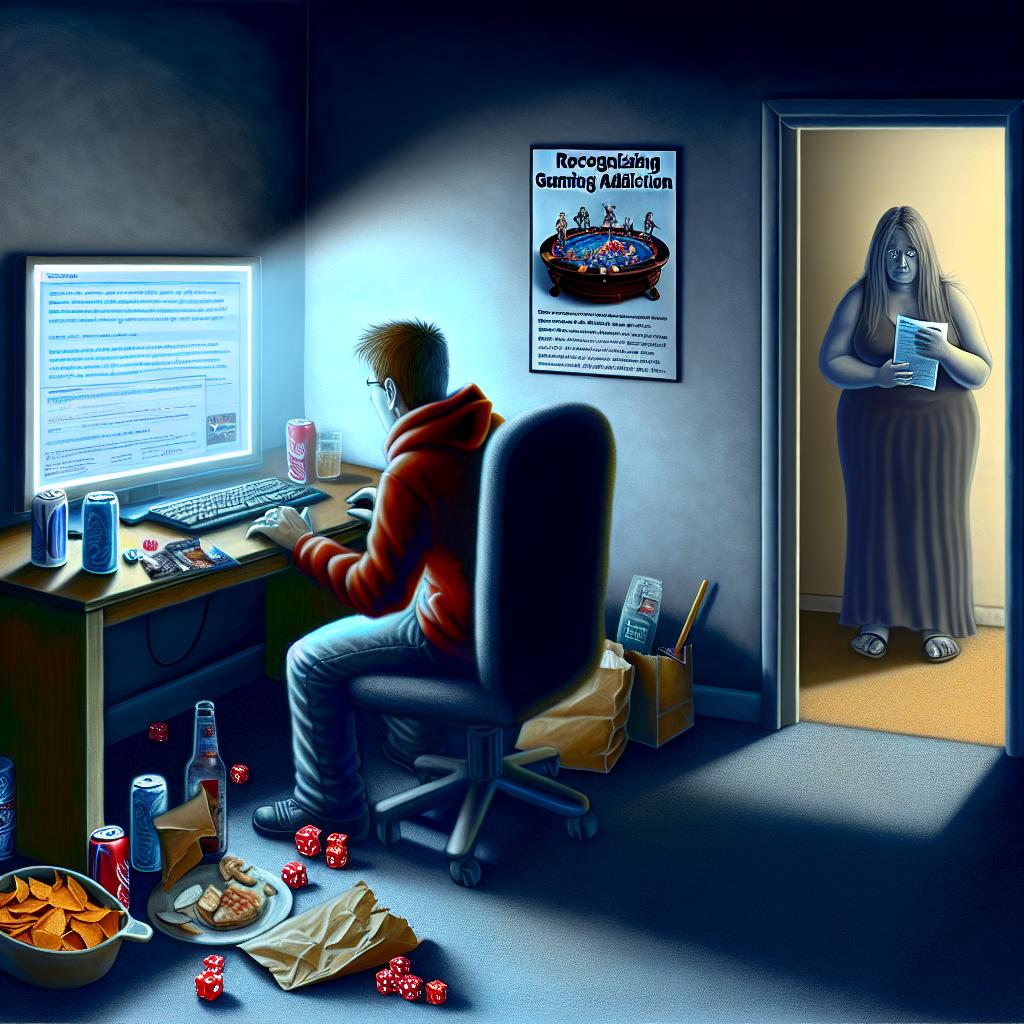Understanding Gaming Addiction in Partners
Gaming, when balanced, offers both entertainment and educational opportunities. It serves as a platform for social interaction and can even enhance cognitive skills. However, when gaming becomes excessive, it can lead to what many experts recognize as gaming addiction. Recognizing the signs of this addiction in a partner is crucial for maintaining a healthy relationship and ensuring their overall well-being.
Behavioral Changes
Behavioral changes often serve as the most noticeable signs of gaming addiction. It is not uncommon for a partner to gradually begin prioritizing gaming over other significant activities, such as attending social events, participating in family gatherings, or fulfilling work responsibilities. These changes can be subtle initially, appearing as a preference for gaming during leisure time. However, over time, the obsession may grow, leading to a consistent inability to limit gaming time. Despite the evident negative impact on daily life, the partner might continue to prioritize gaming. Initiating a conversation about these observed changes becomes crucial in such situations.
Neglect of Responsibilities
Addiction can often lead to the neglect of important responsibilities. This may manifest in various aspects of life. For instance, individuals may miss deadlines at work or exhibit declining performance in academic settings. Household chores may be neglected, leading to increased tension in shared living spaces. If gaming assumes more importance than these essential tasks, it may suggest a deeper issue related to addiction. Partners need to address these signs and discuss the underlying reasons contributing to this neglect.
Changes in Sleep Patterns
Gaming addiction can severely disrupt normal sleep schedules. It is common for affected partners to stay up late into the night or even skip sleep entirely to indulge in gaming sessions. This sleep disruption leads to constant fatigue and irritability during the day, which can have negative repercussions on their physical health and potentially lead to chronic insomnia. Moreover, this altered schedule may also limit the amount of quality time couples spend together, impacting the overall relationship dynamics.
Emotional Signs
The emotional state of a partner often serves as another indicator of potential gaming addiction. Unusual defensiveness, anxiety, or irritability when gaming habits are challenged or interrupted may signal a deeper problem. These emotional responses suggest that gaming has become more than just a hobby—it might be an important coping mechanism for the individual. If gaming is used as a means to escape reality or manage stress and anxiety, it becomes essential to seek help to address these emotions constructively.
Isolation from Friends and Family
Isolation is another common sign of gaming addiction. Individuals affected by gaming addiction might gradually start spending significantly less time with family and friends or avoid participating in social activities altogether. The preoccupation with gaming may lead them to prefer virtual interactions over real-life engagements. This shift from physical to virtual interaction sometimes results in a loss of essential social skills and the deterioration of meaningful relationships. Addressing this isolation requires open communication and understanding of the individual’s needs and challenges.
Financial Implications
Gaming addiction can also have financial repercussions, which may become apparent over time. Partners may notice an excessive amount of money spent on purchasing games, gaming consoles, or related gear. In some cases, a partner’s gaming habits may interfere with their earning potential, leading to financial instability. This behavior is not just stressful; it also threatens the financial stability needed for a relationship to thrive. Thus, it is important for partners to address these issues openly and work together to develop a feasible financial plan.
Seeking Help
If you observe these signs in your partner, it is advisable to encourage them to seek professional help. Therapists and counselors who specialize in gaming addiction can provide valuable strategies and support for managing the addiction effectively. Therapy involves understanding the root causes of addiction and developing healthier coping mechanisms. Engaging in open and honest communication about the issue is essential for providing support and understanding during this challenging time.
For partners seeking further resources, helpful information is available online. Consider visiting resources like Psychology Today or Healthline. These websites offer comprehensive insights and professional advice to help address the growing concern of gaming addiction. They provide articles, research, and expert opinions on recognizing, understanding, and managing gaming addiction effectively.
In summary, the path to addressing gaming addiction in a partner involves recognizing the signs, maintaining open communication, and pursuing professional assistance as needed. This comprehensive approach not only aids in managing the addiction but also strengthens the relationship by fostering a supportive and understanding environment.

